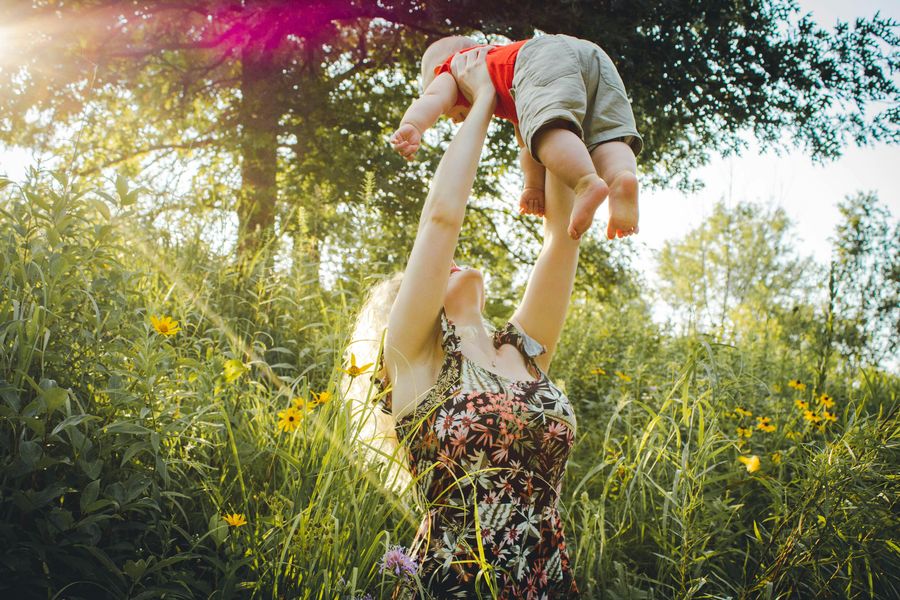Are you familiar with the term “helicopter parent”? It’s a way of describing a style of parenting that involves being overprotective and over-involved with your child’s life.
While it’s understandable to want to keep your child safe, too much of this style of parenting can ultimately do more harm than good. In this article, we’ll explore the signs of helicopter parenting and why it’s important to balance being involved in your child’s life with allowing them to develop their own independence.
Involvement in Child’s Fights
One common hallmark of helicopter parents is their tendency to insert themselves into their child’s conflicts and fights. While it’s natural to want to advocate for your child and protect them from harm, it’s important to note that they need to develop their conflict resolution skills independently.
By constantly jumping to their rescue, you risk creating a sense of learned helplessness within your child and interfere with their ability to learn and grow.
Constantly Telling Child What to Do
Control is another hallmark of helicopter parenting. These parents often have a rigid schedule for their children and want them to be involved in certain activities that they believe are beneficial.
While there’s nothing wrong with introducing your child to new hobbies and opportunities, consistent control over their lives can be detrimental. It’s important to allow your child to have a say in their own lives and to foster their independence.
When we give children the space to make their own decisions, we encourage growth and build a sense of self-efficacy in them. Ultimately, this will help them build a sense of self-reliance and self-esteem.
Keeping Tabs on Child
Finally, helicopter parents are notorious for their monitoring and tracking of their children. While it’s natural to want to know where your child is, who they’re with, and what they’re doing, it’s important to maintain boundaries.
Giving your child some sense of privacy leads to mutual respect and teaches them independence, a valuable life skill. It also gives you time to focus on your own relationships, hobbies, and interests.
Conclusion
Parents have a very important role to play in their children’s lives. Children need role models and support, adults to look up to and rely on, and someone to help them navigate the sometimes-complicated world.
However, part of being a good parent is knowing when to step back and allow children to take risks, learn from their mistakes, and grow. It’s important to find a comfortable balance between being involved in your child’s life and allowing them to develop their own independence.
While helicopter parenting may come from a place of love and concern, it ultimately stunts your child’s growth and development. By allowing your child to make their own choices and mistakes, you will help them foster their own sense of autonomy, build a strong self-image, and create a positive sense of self-worth and self-esteem.
At the end of the day, this is the greatest gift any parent can give to their child. Have you ever heard the phrase “prolonged adolescence?” It refers to the idea that young people today are taking longer to become fully independent adults.
While many factors contribute to this trend, helicopter parenting is one of them. When parents hover over their children, dictating their choices and sheltering them from consequences, they prevent them from acquiring the skills and traits they need to thrive as adults.
Prolonged Adolescence
Helicopter parenting can create a sense of dependence in children that can extend into their adult lives. When parents shield their children from challenges and do not allow them to learn how to handle failure, they stunt their growth and development.
This results in a situation where young people lack the independence and maturity needed to face life’s challenges. They stagnate, staying in old ways and depending on their parents for support well into their twenties and beyond.
Psychological Effects
Helicopter parenting can also have psychological effects on children that can follow them throughout their lives. Children who are not given the space to make their own decisions and think for themselves can develop social anxiety and depression.
They may also struggle with their mental health as they grow up, unable to fully process their emotions and experiences due to constant oversight and intervention from their parents.
Creating Fear of the World
When a child grows up with helicopter parents, they may also develop a fear of the world around them. The parents, with all their protection and warnings about the dangers of the world, may instill a sense of fear and anxiety in the child that can persist into adulthood.
This fear can stifle creativity, innovation, and risk-taking. It can also make it difficult for the child to form meaningful relationships and navigate social situations.
Why is Helicopter Parenting Bad?
What makes helicopter parenting so bad?
It boils down to preventing children from developing essential skills and traits they will need as adults. When parents swoop in to solve every problem for their child, they create an environment where there is no room for growth or learning.
Instead of being opportunities to learn, challenges and heartbreak become situations to fear and avoid. Children never develop the confidence, resilience, and adaptability that they would have if they were given more independence.
Preventing Independence and Creativity
Helicopter parenting often focuses on control, imposing the parent’s will on the child without allowing for creative thinking or experimentation. Children need the freedom to think, explore, and experiment without fear of repercussions.
If they are unable to do so in childhood, they are less likely to be independent and creative as adults. They may struggle when faced with situations beyond what they were prepared for, unable to think on their feet or come up with creative solutions to problems.
Suffocating Children
Lastly, helicopter parenting can be suffocating for children. They may feel overwhelmed by the amount of control and interference their parents exert over their lives.
They may feel trapped, unable to spread their wings and fly. This lack of independence and control can lead to feelings of isolation, loneliness, and anxiety.
Conclusion
Helicopter parenting is an increasingly common way of raising children today, but it’s clear that it’s not the best for child development. By preventing children from developing independence, creativity, and resilience, parents create a situation where children may struggle to adapt to and succeed in adult life.
Conversely, by allowing children more freedom and opportunities to learn and grow, parents can set them up for a successful, independent, and fulfilling life. It’s important for parents to find a balance between being involved and allowing their children the space they need to develop and grow on their own.
Are you struggling with helicopter parenting and want to learn how to stop? It’s never too late to make a change in your parenting approach.
Being a Good Listener
A key aspect of lessening the helicopter parenting tendencies is being a good listener. Children need to feel heard and understood.
Listening to your child’s thoughts and emotions without judgment fosters communication, empathy, and mutual understanding. Even when disagreements arise, open communication can help bridge the gap and prevent arguments.
Encouraging Independence
Encouraging independence is another important step in breaking out of the cycle of helicopter parenting. This could involve giving your child age-appropriate responsibilities, allowing them to make decisions, and avoiding micromanagement.
Children need opportunities to learn how to navigate life’s challenges and make decisions for themselves. Encouraging independence will develop your child’s decision-making skills and build self-efficacy, which is a valuable life skill.
Supporting Creativity
Encouraging creativity is also essential, as children need to develop their imagination, problem-solving, and innovation skills. Parents should provide tools and support for their children to explore and express their creativity, such as by allowing them to choose their own hobbies and activities or providing materials and resources for arts and crafts.
This will help them develop a sense of identity and self-expression that is valuable throughout life.
Letting Children Face Consequences
Parents must allow their children to face the consequences of their actions, whether those consequences are good or bad. Allowing them to experience the natural consequences of their actions will help them understand the fairness and accountability in the real world.
The goal is to empower children to take responsibility for their own choices and actions, develop self-reliance, and learn from their experiences.
Acknowledging Weaknesses and Strengths
Lastly, it’s important to acknowledge your children’s weaknesses and strengths. Nobody is perfect, and everyone has areas where they excel and areas where they struggle.
Parents should be aware of their children’s strengths and work to foster those, while also acknowledging areas where they may need improvement. This helps children develop a sense of self-awareness and encourages growth and development.
Conclusion
Helicopter parenting is a style of parenting that can lead to negative outcomes in the long run. However, there are many ways that parents can adjust their style to avoid becoming over-protective and overly involved in their children’s lives.
By becoming better listeners, supporting independence and creativity, letting children face consequences, and being aware of their weaknesses and strengths, parents can provide a supportive environment to help their children grow and develop independence and life skills. Remember, the goal is to support children as they grow into confident, independent, and self-sufficient adults.
In conclusion, helicopter parenting can have lasting effects on a child’s development and well-being. Overprotecting and interfering in their lives can prevent them from becoming independent, creative, and responsible adults.
Communication, encouraging independence, supporting creativity, allowing children to face consequences, and acknowledging weaknesses and strengths are essential steps to prevent helicopter parenting. As parents, it’s important to create a supportive environment for children to develop their skills and character while providing them with enough space to figure out the world on their own.
The earlier we address our tendency towards helicopter parenting, the better the outcome for our children’s growth and development.



